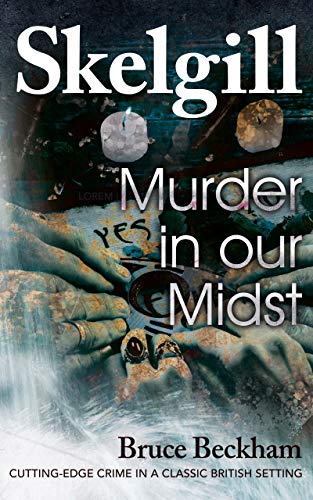
I could tell just by looking at their faces that they were awed by the genius of my writing. At least, I could tell they were pretending to be awed by the genius of my writing – and really, this was Hollywood, so what was the difference? In this town, to be admired and to be in a position where people had to pretend to admire you were pretty much the same thing. In fact, the latter might’ve been a little tastier than the former, when you came right down to it.
I’d been waiting for the third and final volume of Andrew Klavan’s Another World fantasy series, but somehow I missed its release. I have remedied that omission now.
The Emperor’s Sword opens on a world in some ways far weirder than the fantasy world to and from which its hero has been shuttling. That weird world is Hollywood. Austin Lively has made it to the big time. He’s sold a screenplay to a major studio, he goes to the best parties, and he’s being hailed as an “important new talent.” He has an expensive car, an expensive home, and his pick of eager starlets to share his bed. However, like Hamlet, he has dreams, dreams that remind him of places and adventures he just can’t remember and doesn’t want to believe in.
But when his neglected girlfriend Jane is framed for murder, the memories come back in a storm. He has an unfinished job to do in the Other Kingdom, and he can’t save Jane unless he completes that job. He returns to the Other Kingdom, only to find it’s too late. The Emperor to whom he was to bring a message is dead. And Austin now needs to fight a duel he can’t win to save innocent people from death.
Fortunately, in the Other Kingdom, death sometimes works differently than it does here.
Nobody, but nobody, knows how to build plot tension like Andrew Klavan. The Emperor’s Sword puts you on a roller coaster like those old movie serials tried to, but failed. The roller coaster works here. The reader accompanies the hero from the depths of despair to the peaks of triumph and back, with barely a moment to catch his breath.
There’s also a lot of (no doubt semi-autobiographical) realism about Hollywood, and how truly evil and soul-destroying the industry and its culture can be. I do not recommend this book for younger readers, because there’s some very sordid stuff going on here. It pleases me, on the other hand, that top-grade fantasy is being written for an adult audience.
I’m a harsh critic of fantasy – I compare everything to a) Tolkien, or b) the things I imagine my own work to be. In terms of fantastic imagination, I wouldn’t say this book climbs the heights. Some of it seems kind of boiler-plate medieval to me. But in terms of storytelling and plotting – mixed in an uplifting way with brutal spiritual honesty – it would be hard to do better. Highly recommended for adults.






